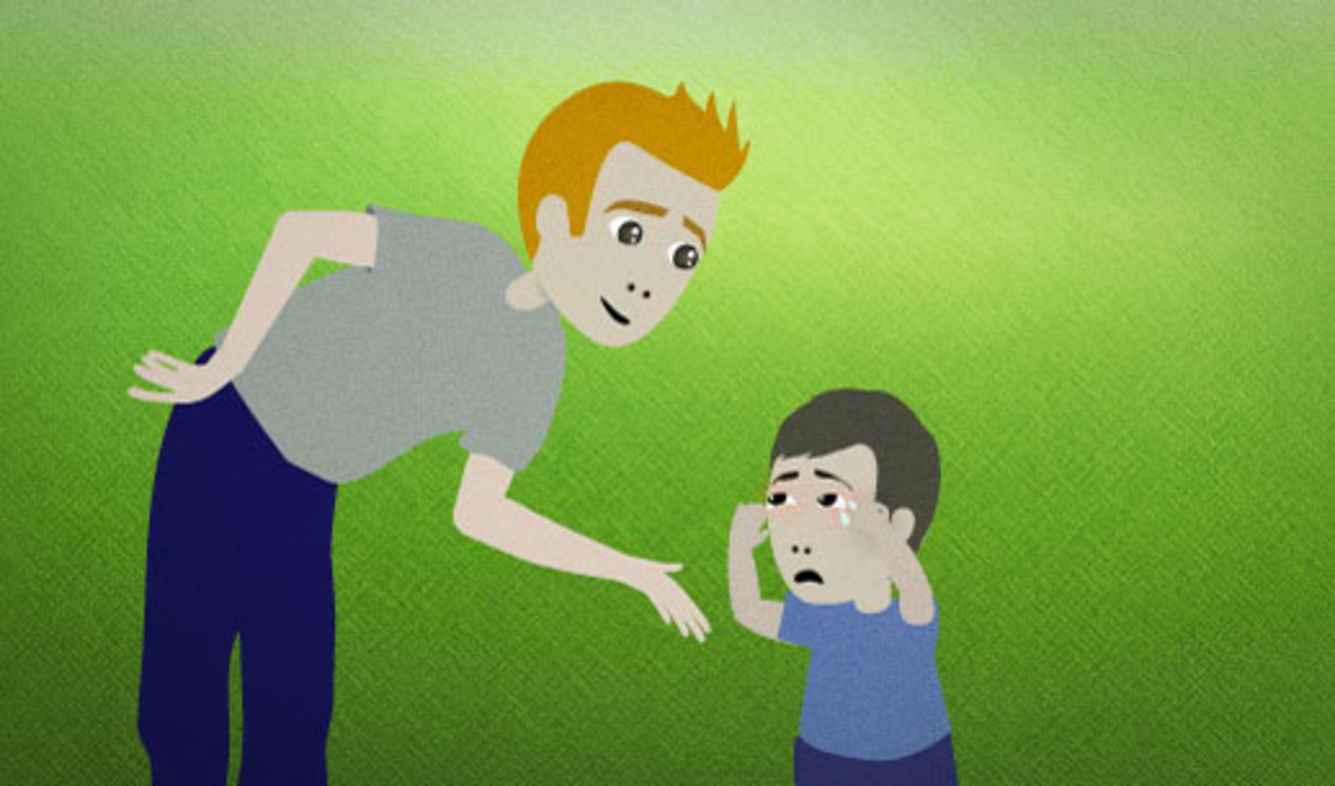“Hold on, hold on. Start at the beginning.”
The child that you babysit had some kind of accident. He's upset and crying. He's trying to tell you about the accident, but it doesn't make sense. You tell him to start telling the story again in order.
Hold on, hold on. Start at the beginning.
Want Video and Sound? Follow us on YouTube

Hold on.
The phrase "hold on" means "wait". For example:
You tell someone to "hold on" when you want them to wait for a short time. You use "hold on" instead of "wait" when the reason for the listener to wait is not that important. In an emergency situation, you would clearly yell "Wait!". But in normal conversation, "hold on" usually fits better.
Start at the beginning.
Use this expression when someone is trying to explain something that happened, but their story doesn't make sense. This happens when someone gets too excited, too scared, too nervous, etc. You want them to tell the story in order, from beginning to end, so that you can understand it better.
